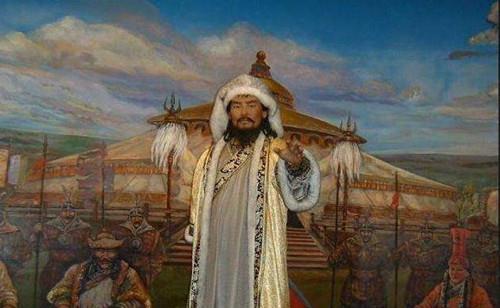More than 700 years ago, the result of a war shattered the myth of the invincibility of the Mongol army. In June 1251, Genghis Khan's grandson Möngke was proclaimed Khan at the maharajah's assembly as the new king of the steppe, and the aggressive expansion of the Mongols continued as usual during Möngke's time, and Hulagu, as Möngke's half-brother, was appointed commander of the Western Expedition, and Möngke had told Hulegu that every inch of land from the steppe to the west to the end of Egypt had to obey the orders of Genghis Khan's family.

As Möngke had wished, Hulagu's soldiers pointed straight to the new territory. In 1253 AD, hulagu's Mongol cavalry began the Third Western Expedition, and the Murai state that had tried to assassinate Möngke was swept away by the Mongol Iron Horse; baghdad was subsequently captured, the Abbasid caliph was captured, the Arab Empire was destroyed, and the Islamic world fell into anxiety and panic;
In the spring of 1260, Damascus, the last important city of the Arabs in Asia, was occupied by the cowardly vanguard troops of the Mongol generals, the Syrian Ayyubid dynasty was declared extinct, Hulagu refused the Ayyyubid Sultan Nasr's request for peace and Nasr ran directly to Egypt, Hulagu's next stop was the Egyptian Mamluk dynasty, if the Mamluk dynasty was also swept away, the last force in the Islamic world to resist the Mongol iron horse would also dissipate.
The Mamluk dynasty was originally born in the approaching Mongol army, in the Middle Ages, Mamluk (originally meaning slave) slave soldiers served the Arab caliphate, mainly serving the Ayyubid dynasty in Egypt, with the decline of the caliphate and the decline of the Ayyubid dynasty, the Mamluks, as a military group with sufficient strength, not only defeated the Crusaders, but even captured King Louis IX of France who launched the 7th Crusade.
The Mamluk officer Kudus won the struggle and became a dynasty sultan. Before he could enjoy the joy, he was threatened by the Mongol army. At this time, a messenger from the east brought hulagu the news of the death of the Great Khan Möngke, and Hulagu immediately turned around to take care of the election of the Great Khan, leaving only the vanguard general timidly without spending about 20,000 troops to defend Damascus and continue the road to the west.
Timid Buhua is a warrior, but there is some lack of wisdom. The soldiers "know thyself and know each other", Kudus knew that Hulagu was gone, but did not find out how many people he left behind, and did not dare to act rashly, but at this time, the cowardly Buhua was at odds with the Crusader knights, because his nephew was killed, and the cowardly Buhua was furious, and led the army to counterattack and launch a disciplinary action, capturing Sidon and looting it, the consequence of this was that he lost the support of the Crusader state, but also exposed his own strength.
This accident rekindled Kudus's confidence in the victory over the Mongol cavalry, and Hulagu and the main Mongol army were gone, and it was a godsend opportunity to timidly try to maintain the stability of the conquered areas with the remaining troops but to lose their own assistance. He quickly formed a coalition to prepare to fight against the cowardly Buhua, who never thought that the Egyptian king was capable of rebelling against the Mongol Iron Horse, and proudly sent two envoys to persuade him to surrender directly, and to dedicate the land around the Nile to the descendants of Genghis Khan.
When the Mongols went on an expedition to Central Asia, they had co-opted the Turks and subordinated them to the same ethnic group, and the Arabs in Egypt had every reason to fear that Kudus would directly sacrifice their land. Unexpectedly, the two envoys had just explained their intentions to Kudus, and Kudus directly ordered his Mamluk soldiers to execute the two, apparently not intending to accept the path "given" by the cowardly Unhua.
In response to this incident, the Arab scholar Ibn Assir once lamented: "The Mamluks from Central Asia never joked ... They did not like to negotiate as much as the Arabs and Persians, and they did not understand the meaning of the two armies fighting without fighting, they simply worshipped force to the extreme. ”
The cowardly Buhua was naturally furious when he learned that the envoy had been killed, and Kudus did not dare to despise the Mongol general, and made sufficient preparations before the war began. The two sides fought fiercely on the plains of Ain Jaru, and it was not too timid to imagine that they would be killed by the Mamluks in this duel, and the Mongol army without a commander lost its combat effectiveness, almost completely destroyed, and the footsteps of the Mongol army's western expedition were blocked. It is said that the cowardly Buhua was still laughing at Kudus before his death, saying that his defeat was purely providential, not what Kudus was capable of.